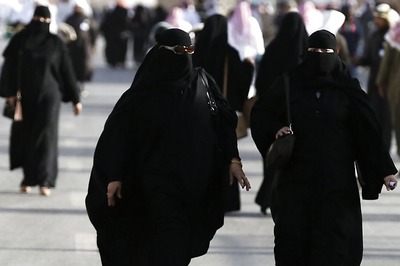
views
New Delhi: In what is being termed as a strategic move ahead of the 2019 Lok Sabha elections, the Narendra Modi-led NDA government has decided to give 10% quota in jobs and higher education to economically backward persons of upper castes.
However, the government is yet to release an official communication stating its intent and plan for granting the reservation. News18 lists down the key points and the issues to look out for as the government likely briefs Parliament on Tuesday over the same.
What We Know:
-Union Cabinet on Monday approved to grant 10% reservation to economically backwards sections of the upper caste.
-The reservation will be above the existing 50% and the government will amend Articles 15 and 16, which deal with discrimination and equal opportunity, of the Constitution to implement it.
-Government plans to introduce “economic backwardness” as a criteria for granting reservation and escape judicial scrutiny as the 50% cap is only for caste based discrimination.
-Those earning less than Rs 8 lakh per annum and own less than 5 acres of land would be eligible for the proposed quota.
-The person's residential house should be below 1000 sq ft, and the residential plot should be below 100 yards in a notified municipality area and below 200 yards in a non-notified municipality area.
-Religion will not be a bar in this category.
What We Don’t Know:
-As of now, the government has 27% reservation for backward classes whereas 16% reservation is for Scheduled Caste and Scheduled Tribes. The total reservation is for 49% currently. If a 10% reservation would be given to the upper caste poor, then the total would be taken to 59%. Will this be possible to avoid by taking “economic backwardness” as a measure to grant reservation?
-According to the Constitution of India, citizens having annual income less than Rs 1 lakh and who do not belong to any disadvantaged social category such as Schedule Caste (SC), Schedule Tribe (ST) and Other Backward Classes (OBC) have been categorized as Economically Backward Classes (EBCs) in India. However, the constitution is silent on Economically Backward Upper Castes. The definition in the bill will play a key role
-To usher in such a reservation, the government needs to back up its proposed amendment with survey figures. The debate to ensue would also shed light on this grey area.
-If passed, will this bill too be placed under the ninth schedule of the Indian Constitution to partially evade judicial scrutiny?
-The government plans to introduce “economic backwardness” as a criteria for granting reservation and escape judicial scrutiny as the 50% cap is only for caste-based discrimination. However, it remains unclear as to how government will justify this being a case of "economic backwardness" solely when it’s a segregation of the "upper castes" itself.
-Will this proposed move violate the basic structure doctrine of the Indian Constitution? According to PS Krishnan, who was behind a number of constitutional and legislative enactments told News18 that the Constitution did not provide similar provisions for those who were only poor. It did not take into account the economic reasons to provide reservations to those poor. But that does not prevent the government from giving them other help through subsidies, scholarships, loans, economic advancement etc.
Even if the Constitutional amendment is made it is challengeable on the grounds that it is against the basic structure of the Constitution.
-The point that Tamil Nadu has 69% reservation breaching the 50% cap is under challenge in the Supreme Court and hence is questionable even though placed under the ninth schedule. The Balaji case which reiterated the 50% maxima continues to be law. Similar attempts to breach the limit by Maharashtra and Andhra Pradesh was struck down by courts.
-The M Nagraj versus Union of India, which laid down how reservation would be granted to SC/ST in public promotions was in the apex court in 2018 to be considered for reconsideration. However, the court refused to reconsider the verdict and only altered a rule to grant such a reservation. This verdict too would be a hurdle for the proposed constitutional amendments.
-Another question remains unanswered. 49% already has been reserved on caste lines. If the government does not wish to touch the 49%, this 10% quota will come out of remaining 51%. In effect open competition will be restricted to 41%. Will this be possible?
-In Indra Sawhney, SC rejected the attempt of PV Narasimha Rao government to grant reservation based on economic criteria. SC had ruled that such reservation was not possible under Article 16(1) or 16(4) and that debarring a citizen from consideration for appointment solely on basis of income or property holding was held to be inconsistent with respect to equal opportunity guarantee. Would not this mar the proposed amendments?


















Comments
0 comment